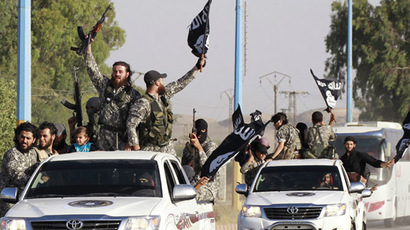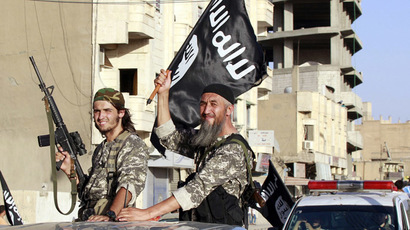ISIS sells stolen Kirkuk oil at $20 per barrel - Iraq Finance Ministry
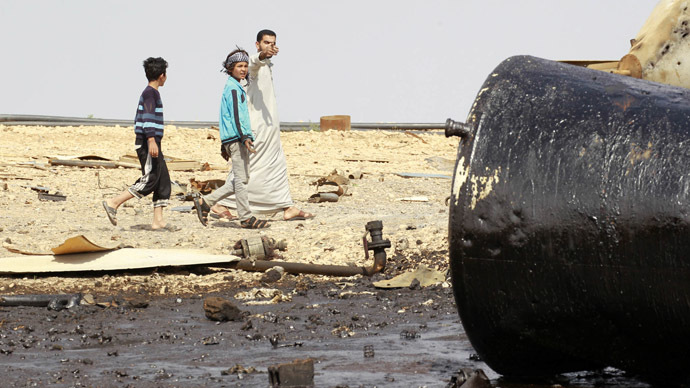
Islamic State militants, who have seized oil fields and refineries in Kirkuk province in the north of Iraq, are selling the hijacked oil on the black market for a price as low as US $20 per barrel, according to the country's Finance Ministry.
The extremists have moved deeper into the oil rich Kirkuk region and captured more oil production facilities in the area, including one of Iraq's oldest oil fields, the director of the Public Debt Department at the Finance Ministry, Muwafaq Taha Izz al-Din Al-Houri told RIA Novosti news agency.
There are reports that Islamic State (IS) is selling Iraqi oil for only $20 per barrel on the black market, Al-Houri told the agency on the sidelines of an expert meeting on terrorist financing in Bahrain. The price is four times lower than on the official market.
"Iraq's diplomatic agency and oil ministry are actively working on finding those, who buy oil from the group, and to inform the international community on it for taking appropriate action," the Finance Ministry representative said.
Combatting the financing of militants such as the Islamic State group "is half the battle to defeating them," Bahrain's Foreign Minister Sheik Khalid bin Ahmed Al Khalifa told a gathering of delegates from 30 countries at the Sunday conference, as quoted by AP.
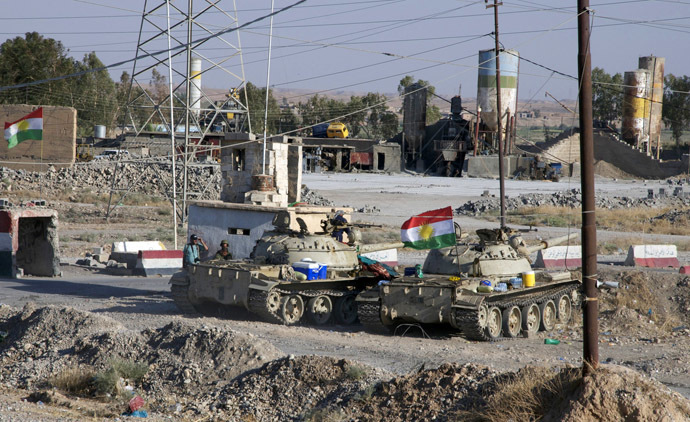
Earlier this week, the Kurdistan Regional Government (KRG) in Iraqi Kurdistan ordered the arrest of 360 suspects on charges of oil dealing with IS, BasNews reported.
The investigation into the case of some Kurdish Peshmerga Ministry officials involved in oil dealing with IS militants in Kirkuk, has been underway and scores of suspects have been arrested, according to BasNews, who were citing a member of Iraqi Kurdistan Parliament.
READ MORE: UN threatens sanctions on anyone trading oil with ISIS terrorists
If found guilty, the detained suspects, who allegedly bought oil from the militants in Kirkuk province and then smuggled it to Iran, could be charged with an article of Kurdistan terror law, which includes the death penalty, the Erbil-based news agency reported.
International intelligence agencies say the Islamic State’s illegal business is hard to track, as oil is being sold to countries bordering IS-controlled territory and later re-sold "whitewashed."
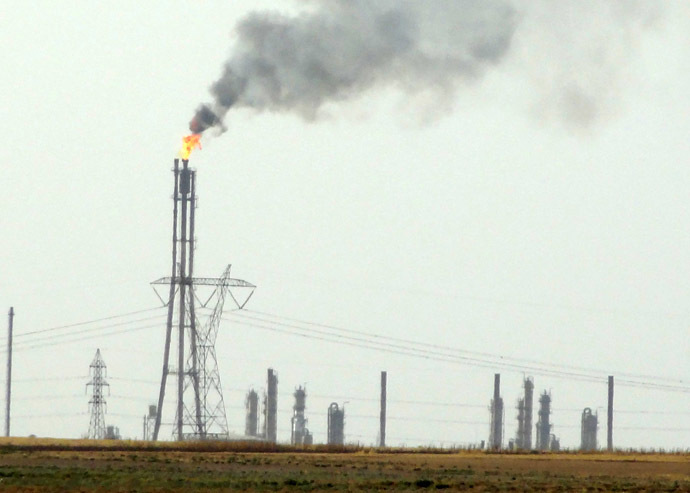
At an energy conference in late October, a senior US official told Reuters that the US was working with the KRG to identify oil routes, trucks and traders involved, in an effort to block the smuggling, which is a key source of funding for Islamic State.
In September, the jihadists were gaining more than $3 million per day just from oil sales, according to US intelligence officials and experts, making IS richer than any other terror group in history. The militants were then selling the hijacked oil at discount prices of about $25 to $60 per barrel.
READ MORE: Islamic State seeks crisis manager to save ailing oil revenues - report
According to US analysts, eleven oil fields in Iraq and Syria were under control of the militants group, who were selling oil and other products via old established networks under the noses of Kurdish, Turkish and Jordanian authorities.
This week German media reported that since then the group's oil production capacity has sharply declined, according to German intelligence agency (BND) estimates. Oil production in IS-controlled areas has shrunk six-fold over the past three months, and oil transactions bring the militants some $270,000 per day, Sueddeutsche Zeitung newspaper reported, citing BND.













